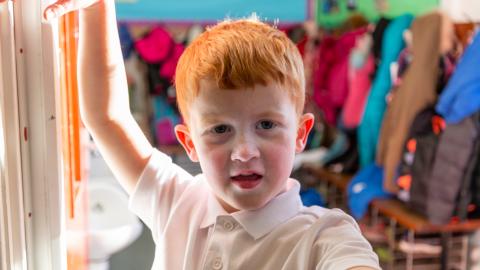Assessment is a continuous process integral to learning and teaching. It is how teachers gain knowledge of their pupils’ needs, achievements and abilities, enabling lesson planning and delivery to be more effective and thereby raising attainment for every child. Our Assessment Policy outlines the following summary in more detail.
What is Assessment for Learning?
Assessment opportunities, which are a natural part of teaching and learning, are constantly taking place in the classroom through discussion, listening and analysis of work. It is essential that teachers know how well a child has progressed on a day to day basis and that pupils understand how well they are doing and what they must learn to help them improve.
What is summative assessment?
Summative assessment is periodic assessment which is a systematic part of our school’s work. It is through an effective moderating and a tracking system that the needs of every pupil can be met and that the school develops a clear understanding of how to raise standards.
The regular reviewing of tracking data will give teachers the opportunity to revise and refine targets for the class. It is in recognising the individual abilities of pupils, that the school can make final tuned adjustments for target setting for each cohort. The discipline of regularly analysing pupils’ attainment will ensure that every pupil has challenging and realistic targets set for them and that the path of reaching those targets is determined through effective classroom organisation; setting learning groups and careful planning.
Foundation Stage (Reception Year)
A child starting in their Reception Year will undertake a 'Reception Baseline Assessment' within the first six weeks of starting. The purpose of the assessment is to provide the starting point for a new measure that will help parents understand how well schools support their pupils to progress between Reception and Year 6. There is more information about this for parents in the attachment listed below.
Foundation Stage (Reception Year)
In the Foundation Stage children follow the Early Years Foundation Stage and are assessed using the Foundation Stage Profile.The EYFS profile summarises and describes children’s attainment at the end of the EYFS. It is based on regular observations and assessments in the 3 prime and 4 specific areas of learning, and the 3 learning characteristics. At the end of the Reception year, a completed profile consists of 20 items of information: the attainment of each child assessed in relation to the 17 early learning goal (ELG) descriptors, together with a short narrative describing the child’s three learning characteristics.
Year 1
At the end of year 1 children have a phonics test which is reported to parents. “The phonics screening check is a short, light-touch assessment to confirm whether individual children have learnt phonic decoding to an appropriate standard.”
The phonics test will identify the children who need extra help so they are given support to improve their reading skills. They will then be able to retake the check so that school can track children until they are able to decode. A child who did not pass the screening check in Year 1 will take the test again in Year 2.
Key Stage 1
At the end of year 2, children take statutory assessments in reading, writing and maths. They are marked internally and moderated carefully. Formal and rigorous moderating visits by the Local Authority take place regularly to ensure that the school’s assessments are accurate.
“These tasks and tests are designed to be administered informally as part of normal classroom activity. The results inform teachers’ overall assessments in English, mathematics and science, which are reported to parents and the Department."
By the end of Key Stage 1, children are expected to be working at Year 2 Age Related Expectations some may be working above this and this is known as greater depth.
From September 2023, the Standards and Testing Agency have announced that the end of Year 2 tests will no longer be statutory and will become optional tools for assessment at primary schools.
Key Stage 2
In the summer of Year 4, your child will take part in a Multiplication Tables Check. The purpose of the check is to determine whether your child can fluently recall their times tables up to 12, which is essential for future success in mathematics. It will also help us to identify if your child may need additional support.
At the end of Key Stage 2, your child will take national tests in reading, writing, grammar, punctuation and spelling and maths. You will be sent their test results and their teacher’s assessment of their progress. The reading, mathematics and spelling, punctuation and grammar tests are marked externally. Writing is assessed internally with moderation visits from the local authority.
By the end of Key Stage 2, children are expected to be working at Year 6 Age Related Expectations some may be working above this and this is known as greater depth.


